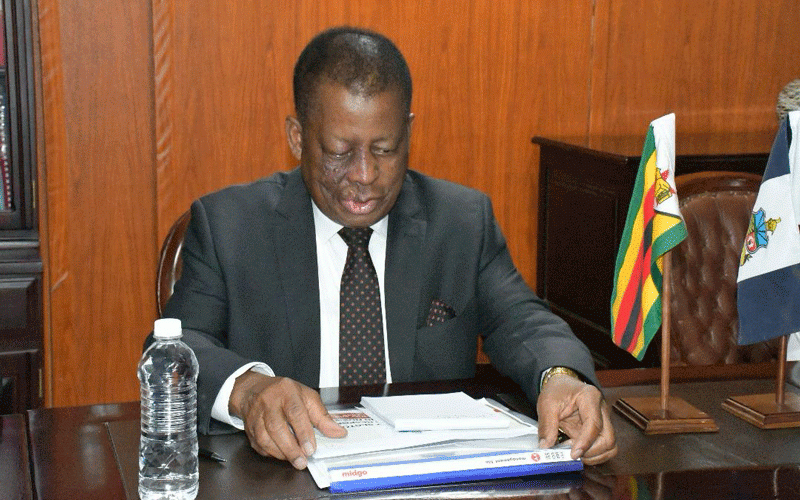
in the groove:with Fred Zindi
Musavengana Nyasha’s forthcoming book, titled To Entertain and Influence in which he describes Payola, has helped untold numbers of musicians, including me, grow in the business and spiritual lives. Payola is quid pro quo, just like bribery and kickbacks given to DJs in compensation for playing certain artistes’ music. At the moment, there is one prominent musician, who is said to have paid several DJs a total of RTGS$5 000 to get airplay for his music.
Nyasha’s book, like Clive “Mono” Mukundu’s 2018 Poor and Famous, tells it like it is in a helpful, honest, hopeful and informative way as it offers valid, useful information based on modern experiences on how Payola works. Nyasha, who spent 13 years working at ZBC, gives an eyewitness account of Payola from his own experiences at the broadcasting centre. Since these experiences still prevail, we hope the Zimbabwe Anti-Corruption Commission (Zacc) will step in. A society that promotes a culture of kickbacks tends to retard progress.
On the musical front, when some artistes are promoted at the expense of others, the whole industry and consumers suffer. Such practices mean that some music that is good and worthy of promotion may fail to be heard because the artistes either can’t afford to pay “incentives” or choose not to play the game.
One time at Pockets Hill, ZBC headquarters, some producers were put under a microscope when allegations were levelled against them. The producers were said to be asking for money from different companies and organisations so that they could give the entities extensive and favourable “free” coverage. This coverage would be outside the realm of paid-for commercial programmes. Some coverage would even be slotted as news items. A few producers were eventually fired for their improper conduct while some chose to resign before investigations were targeted at them.
According to Nyasha, with reporters or other programme producers in their pockets, such organisations were assured of issues concerning them not only being covered, but presented in a positive light. Politicians, leaders of public opinion and organisations benefited from such unscrupulous activities. Appropriate, competent candidates failed to be appointed at ZBC. The wrong people were presented favourably to those with the power to make appointments or to the general public.
Musavengana further writes: “As early as 1989 when I joined radio, there was talk of DJs who were in the pockets of record companies. It was said that these DJs were put on some kind of retainer.
At one time, one supervisor, Lisbern Nasasara, put up an article from a magazine on one of our notice boards. This article was about how some DJs in South Africa had been accused of receiving money and gifts from musicians in exchange for favourable airplay. The article was headlined Payola and Nasasara had written beside this headline with a felt-tip pen –“Don’t do it!”
- Chamisa under fire over US$120K donation
- Mavhunga puts DeMbare into Chibuku quarterfinals
- Pension funds bet on Cabora Bassa oilfields
- Councils defy govt fire tender directive
Keep Reading
In a discussion held away from the ears of authority in Radio 2’s big office when the article was put up, most DJs were quite honest about this issue. “If a musician offers me money I’ll take it,” said someone.
“ZBC should pay us more so that we won’t be tempted,” offered another.
It was an open secret that some musicians gave “gifts” to DJs. Whether or not the purpose of these gifts was stated is something that only the people involved could answer.
Musavengana continues: “One of the things apart from my conscience of course, that made me as an individual wary of demanding or accepting incentives was the fact that I always wanted to be in control of my musical compilations. I didn’t want to have to balance my own preferences with those from artistes who had paid for my services. I also didn’t want the headache of having to figure out how much money I needed for favourable airplay.
After recording one musician for the Vaimbi Vemuno show, this musician holds out his hand offering me some money.
“What is that for?” I asked him. He was taken aback and stuttered – “J-j-just t-to say, ah thank you”.
“You don’t need to thank me that way. I’m just doing my job.” I said. “And if that money is for what I think it is, you wouldn’t be able to afford me.” I added.
“Haa, no. I just thought, since it’s almost lunch time, you could buy yourself something to eat,” recovered the musician.
“Thank you,” I said accepting and pocketing the money.
“For the most part though, to begin with, I never thought it fair to take money from struggling musicians. Although peanuts, ZBC was already paying me for doing my job. I never asked for or accepted money that had any strings attached. This I know sounds naïve, if not ridiculously hypocritical.
“There were two major things that complicated the whole issue of favourable airplay. To begin with, DJs would naturally fall in love with certain musicians’ sound. How could anyone separate someone who enjoyed music by a certain artiste and someone who was ‘bought and paid for’? So, naturally, friends give each other presents and help each other whenever possible. Don’t they? One of these friendly gifts came back to bite me, not once, but twice.
“Since I did not have a college qualification for my broadcasting job, there was a time when I decided to get the paper qualification. I began attending the Christian College of Southern Africa for a journalism diploma. There was a musician in my class. I became friends with this deceptively humble person. Towards Christmas of that year the musician produced a number of singles and LPs for other artistes. The music was very good and was well-received and promoted by Radio 2 DJs, myself included.
“One day, a colleague gave me a Zim$20 note.
“[Name of musician] says it’s a present for Christmas.”
“Well, that’s very kind of him.” I said. I had been quite broke on that day and wondering where I was going to get lunch money. The ‘special of the day’ in the ZBC canteen cost $1,20 so, $20 was quite a bit of money.
“A few weeks later five of us were called over to Godwin Mbofana’s office. He was the Radio 2 boss at this time. We found my musician ‘friend’ waiting for us. All those in attendance had received ‘gifts’.
“I called you in here because Mr…..here says he gave you money to play his music. So, now he wants his money back because you have not played his music,” announced the Radio 2 head. There was an outburst of indignation and shock. That “present” was coming back to haunt us.
“Sure, I got some money from him, but I was told it was a Christmas present. No one said…..” I was not allowed to finish as the musician burst out: “I’ve got relatives that include my grandmother in the rural areas who are suffering. Why would I just give you money for nothing?” retorted my “friend”.
“What do I care?” I shouted angrily. “Maybe you don’t love your grandmother!”
“VaMbofana was embarrassed about the whole matter. He was clearly put in a very difficult and potentially scandalous situation. The meeting was adjourned without any concrete decision being made. The ball remained in our accuser’s court. What he was alleging and asking in restitution was rather strange.
“However, whatever his intentions, the guy did not come back and the matter seemed to have died a natural death.
“Let“s face it, if I had not accepted the ‘Christmas present’, I would not have found myself in the mess that followed.
“The matter came up again, and a meeting between musicians and ZBC was held. In my opinion ZBC’s management failed dismally to handle the issue when allegations of corruption were levelled against some of their employees.
“To be fair, I am told that some musicians in the meeting who included the late Andy Brown openly berated their colleagues saying that if someone was foolish enough to pay a bribe it was their own stupid fault.
“A few days after the meeting, the accused were summoned to Pockets Hill, ZBC’s headquarters, to meet the new director who had been embarrassed by the musicians. She was livid. Instead of trying to hear our side of the story, she immediately went on the offensive.
“You people think you have so much power that you can make or break musicians,” she fumed.
“But we do have that power,” I remember retorting. “If we don’t play their music, people won’t know the musicians and their music.”
“The retort wasn’t one of conceit. It was a statement of fact. This, of course, was before the advent of the likes of You Tube and other means through which musicians could independently promote their products. The DJs at the meeting or mini court were disappointed and also angry at what we saw as unfair treatment.
“I am told you actually have a hierarchy in terms of how you operate your system of bribes,” she ranted. “There are Generals and Captains in this organisation,” she continued.
“Eric Knight was ‘The General’ and Gift Msipa ‘Captain’. I wonder what rank this director thought I had in this supposedly army or mafia-type operation.”
Musavengana admits that there was heavy corruption during his time at ZBC where Payola was the name of the game. He conjectures that it is still prevalent.
Shouldn’t Zacc have a role to play if this practice is to stop? l Feedback: [email protected]











